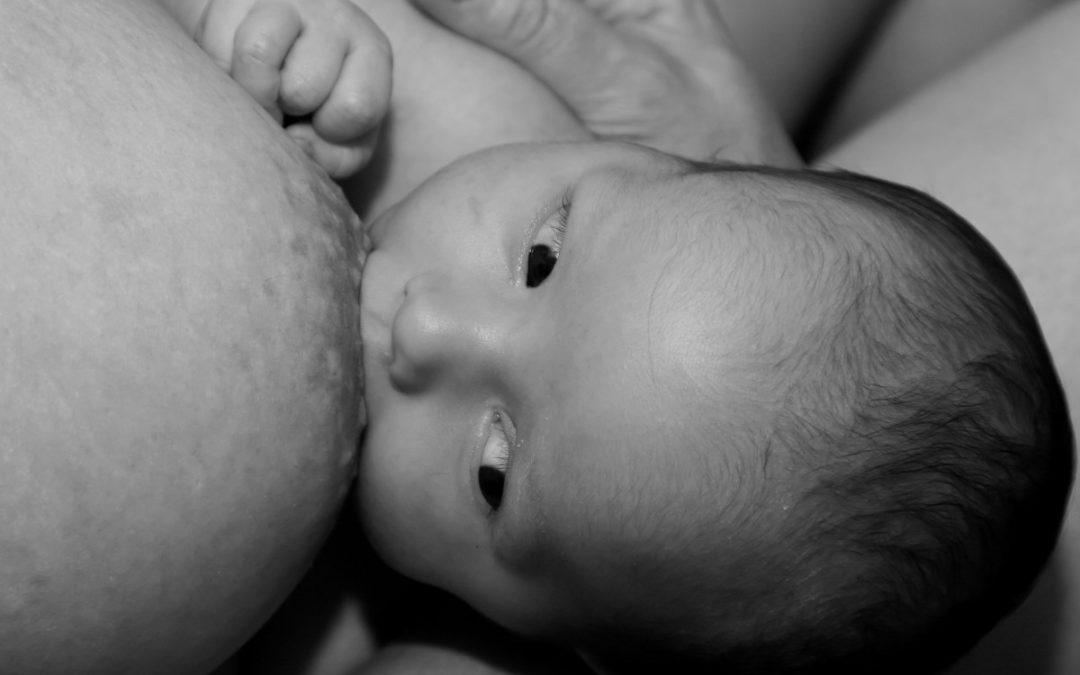In 2017 alone, more than 300,000 women* underwent breast augmentation surgery, according to the American Society of Plastic Surgeons. The popularity of this procedure, especially among younger women, has caused many moms-to-be or women considering becoming pregnant to wonder about the possibility of breastfeeding with implants. If you are an expectant mother with breast implants, or are considering getting a breast augmentation before having a baby, here are some things you should know.
Breastfeeding can be one of the joys of motherhood. It’s a new mom’s opportunity to bond with her baby and give this new life the best start possible by providing essential nutrients and the immune system boost that is so crucial in the first few months after a baby is born. If you had a surgical breast augmentation and are now pregnant or planning to become pregnant, you may be concerned that your breast implants will affect your ability to breastfeed your baby. However, it’s likely you will still be able to nurse a child, depending on several key factors.
Factors Affecting Breastfeeding With Implants
Many women who got breast implants before having children can breastfeed their babies without difficulty, while a few others may experience challenges. Here are a few issues that influence the ability to breastfeed with augmented breasts.
- Location of incisions – If your surgeon made your incisions across your nipples or areolas, there’s a very slight chance he or she accidentally severed your milk ducts or the nerve that signals your brain to help you produce breast milk. In this case, breastfeeding could become difficult or even impossible. However, many qualified plastic surgeons, such as San Francisco’s Dr. Michael Kulick, will make the incisions in the crease under the breast or in the armpit area to minimize scars and preserve your nerves and milk ducts.
- Location of implants – The location of your implants can play a role milk production. During your breast augmentation surgery, your doctor will place your implants either under your chest muscles, or between the breast tissue and the chest muscles. Choosing to place the implants beneath your chest muscles is less likely to damage the nerves and glands involved in milk production. The less pressure your implants place on your mammary glands, the better your chances of producing milk successfully.
- Nipple sensation – If you retain full feeling in your nipples after having your breast augmentation surgery, it means your nerves are not compromised, and you can probably breastfeed successfully. However, if you have little to no sensation in your nipples and your breast augmentation was fairly recent, it is possible full feeling has not returned yet, but your ability to produce milk remains unaffected. If this lack of sensation continues for an extended time, however, consult with your cosmetic surgeon.
- Reason for implants – If you chose to get your breast implants for aesthetic reasons, it is unlikely you will have trouble breastfeeding. However, if you received implants to remediate underdeveloped or tubular breast tissue,** your milk-producing glands may also be underdeveloped, which can inhibit milk production.
Can Breast Implants Leak Into Breast Milk?
Many women who get breast implants choose silicone because they say it provides a more natural look and feel. The FDA examined the safety of silicone implants*** for breastfeeding women and concluded:
examined the safety of silicone implants*** for breastfeeding women and concluded:
“At this time, it is not known if a small amount of silicone may pass through from the breast implant silicone shell into breast milk during breastfeeding. Although there are currently no established methods for accurately detecting silicone levels in breast milk, a study measuring the levels of silicon, a component in silicone, did not indicate higher levels in breast milk from women with silicone gel-filled implants when compared to women without implants.”
How to Tell If You Have Lactation Issues
If you are breastfeeding your first baby, you may not always be able to tell if you are lactating improperly. However, if your infant is not gaining weight, is especially fussy or has feedings that last less than five minutes, you should consult with your pediatrician or a lactation specialist as soon as possible. All these indications may be warning signs that your body is not producing enough milk to satisfy your child, and it may be best to switch to bottle feeding until you have received expert advice.
Can Damaged Nerves Heal After Surgery?
Even after breast augmentation surgery, it is likely your glands and milk ducts will remain functional. In fact, there is even a possibility for damaged nerves and glands to repair themselves over time through processes called reinnervation and recanalization, respectively. So, while you may only be able to produce a partial milk supply for the first baby you have after receiving your implants, subsequent children could enjoy an improved supply.
Get Your Breast Augmentation Surgery With a Board-Certified Plastic Surgeon
If you plan to have children, your best course of action is to wait until you’re finished with your childbearing years to get breast implant surgery. However, if you choose a board-certified cosmetic surgeon like Dr. Kulick to perform your procedure, your breast augmentation should not affect your ability to produce milk or feed your growing baby successfully. That’s because board-certified plastic surgeons have years of training and experience that ensure maximum safety during and after the surgery, as well as optimal results.
If you’re considering breast augmentation, you can reach Dr. Kulick’s office online to schedule a consultation, or call 415-956-2550.
* Source: plasticsurgery.org, March 2018
** Source: healthline.com
*** Source: FDA.gov








